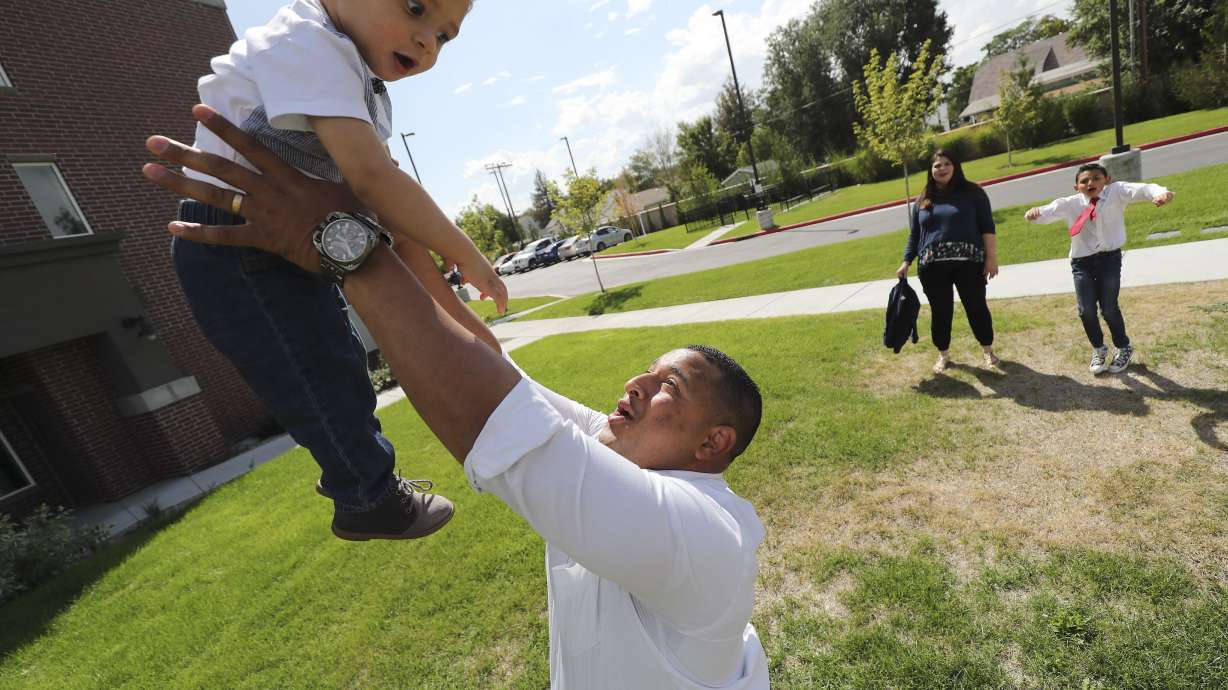Estimated read time: 3-4 minutes
This archived news story is available only for your personal, non-commercial use. Information in the story may be outdated or superseded by additional information. Reading or replaying the story in its archived form does not constitute a republication of the story.
SALT LAKE CITY — Refugees, political asylum seekers and their advocates urged members of the House Education Committee on Tuesday to adopt legislation that would extend in-state tuition rates at Utah's public colleges and universities.
HB102, sponsored by Rep. Jordan Teuscher, R-South Jordan, would require Utah System of Higher Education colleges and universities to grant residency status to individuals who are not citizens of the United States but have been granted or applied for certain immigration status.
Young women and men from the Middle East, Latin America and Africa told the committee that their aspirations of attending college and graduate schools to become working professionals had been stymied because they cannot afford to pay out-of-state tuition rates.
Carlos Moreno, representing the organization New Leaders for America, said he came to the United States as an international student seeking to improve his command of English after earning a law degree in Venezuela.
While in the United States, the authoritarian Venezuelan regime blocked international students from accessing their money.
To further complicate matters, Moreno was charged with conspiracy and treason by Venezuelan authorities, which made it impossible for him to return home.
"I had to apply for political asylum here. I was lucky because my political asylum process took four months. That was very, very, very unusual because that process takes 10 years, seven years, eight years, 12 years. During that time, you are from nowhere. You are in a legal limbo. You are here, but at the same time, you are not here," he said.
Moreno had to face the reality of paying bills, learning English and getting an education.
"For a refugee or somebody who is seeking political asylum, paying out-of-state tuition is crazy, like three times more than in-state tuition," he said.
Moreno attended Salt Lake Community College, where he was elected student body president, which gave him full tuition and a monthly stipend that helped him feed his family.
Others have not been so fortunate and they've had to shelve their college plans because they needed to work to pay their living expenses, unable to afford out-of-state tuition rates, he said.
"That's the reality of the refugee or a political asylum seeker," he said.
For a refugee or somebody who is seeking political asylum, paying out-of-state tuition is crazy, like three times more than in-state tuition.
–Carlos Moreno
A Utah law passed in 2002 allows students who are unauthorized to be in the United States to qualify for in-state tuition rates at public colleges and universities if they have graduated from a Utah high school after attending for at least three years.
HB102 would extend the resident tuition rates to a population that would not qualify for consideration under HB144, passed 21 years ago.
Some of the people who testified Tuesday said they had begun university studies in their home countries but were forced to flee due to political unrest and wished to resume their educations in Utah.
Teuscher urged the committee's support of HB102.
"This bill will have little impact on our higher education institutions, but it will mean everything to these students," he said.
The committee unanimously approved the bill, sending it to the House of Representatives for further consideration.









